Autism Spectrum Disorder (ASD) affects millions of individuals worldwide, with each person displaying unique challenges and strengths. While conventional medicine offers various treatments to manage symptoms, many families are turning to homeopathy for a more natural, holistic approach. Dr. Basharat Ali, a renowned homeopathic practitioner, has dedicated his practice to providing gentle and effective solutions for children and adults with autism.
Understanding Autism: A Spectrum of Experiences
Autism is characterized by difficulties in social interaction, communication, and repetitive behaviors. The severity of these symptoms varies widely among individuals, making it essential to tailor treatments to each person’s specific needs. Homeopathy recognizes this individuality and aims to address the root causes of symptoms rather than merely managing them.
Homeopathy’s Gentle Touch: Treating the Whole Person
Homeopathy is based on the principle of “like cures like,” where substances that cause symptoms in a healthy person can, in minute doses, treat similar symptoms in a person who is unwell. This gentle, non-invasive approach is particularly suited for individuals with autism, who may be sensitive to conventional medications.
Dr. Basharat Ali emphasizes that homeopathy treats the whole person—mind, body, and spirit. By carefully selecting remedies that match an individual’s unique symptom profile, homeopathy aims to restore balance and promote overall well-being.
Customized Treatment Plans
Dr. Basharat Ali believes that no two individuals with autism are the same, and neither should their treatments be. During consultations, he takes the time to understand each patient’s unique symptoms, behaviors, and overall health. This thorough approach allows him to create customized treatment plans that address the specific challenges faced by each individual.
A Complementary Approach
Homeopathy works well alongside other therapies, such as behavioral therapy, occupational therapy, and dietary interventions. Dr. Basharat Ali often collaborates with other healthcare professionals to provide a comprehensive, multidisciplinary approach to autism treatment, ensuring that all aspects of the patient’s well-being are addressed.
Success Stories: Real-Life Transformations
Many families have seen remarkable improvements in their loved ones with autism through homeopathic treatment. Parents report increased eye contact, improved speech, reduced anxiety, and a greater sense of calm in their children. These success stories highlight the potential of homeopathy to bring about meaningful change in the lives of individuals with autism.
Risk Factors for Autism by Homeopathic Dr. Basharat Ali
Autism Spectrum Disorder (ASD) is a complex neurodevelopmental condition, and its exact cause remains unknown. However, several risk factors have been identified that may contribute to the development of autism. As a homeopathic practitioner, Dr. Basharat Ali emphasizes a holistic approach to understanding these risk factors, including both conventional and homeopathic perspectives.
1. Genetic Factors
- Family History: A significant risk factor for autism is a family history of the disorder. If there are already children with autism in the family, the chances of having another child with autism are higher.
- Genetic Mutations: Certain genetic mutations or conditions, such as fragile X syndrome, are associated with a higher risk of autism.
2. Environmental Factors
- Prenatal Exposure: Exposure to certain substances during pregnancy, such as alcohol, drugs, or certain medications, may increase the risk of autism. Maternal infections and complications during pregnancy may also contribute.
- Advanced Parental Age: The age of both the mother and father at the time of conception can be a risk factor. Advanced paternal age, in particular, has been linked to an increased risk of autism in children.
- Low Birth Weight or Premature Birth: Babies born with low birth weight or prematurely are at a higher risk of developing autism.
3. Maternal Health
- Gestational Diabetes: Mothers who develop gestational diabetes during pregnancy may have a higher risk of having a child with autism.
- Thyroid Disorders: Untreated hypothyroidism or hyperthyroidism during pregnancy can also be a contributing factor.
4. Immune System Factors
- Maternal Immune System Issues: Autoimmune conditions in the mother or other immune system abnormalities may increase the likelihood of autism.
- Vaccinations Debate: While there is no scientific evidence linking vaccinations to autism, some parents and practitioners continue to debate this topic. Dr. Basharat Ali stresses the importance of consulting with healthcare professionals before making any decisions regarding vaccinations.
5. Homeopathic Perspective
- Constitutional Weaknesses: From a homeopathic viewpoint, certain constitutional weaknesses or inherited predispositions may increase the susceptibility to autism. Dr. Basharat Ali suggests individualized homeopathic treatment to address these underlying susceptibilities and strengthen the overall health of the child.
- Environmental Toxins: Homeopathy also considers the impact of environmental toxins, such as heavy metals, chemicals, and other pollutants, on the developing brain. Detoxification and remedies aimed at minimizing the impact of these toxins are often recommended.
6. Lifestyle and Dietary Factors
- Nutritional Deficiencies: Deficiencies in essential nutrients, such as folic acid or vitamin D, during pregnancy may be linked to a higher risk of autism. Ensuring a balanced diet and proper supplementation is crucial.
- Stress During Pregnancy: High levels of stress experienced by the mother during pregnancy can affect fetal development and may be a risk factor for autism.
Managing Autism with Homeopathy: Insights from Dr. Basharat Ali
Autism Spectrum Disorder (ASD) is a complex neurological condition that affects communication, behavior, and social interactions. Homeopathy, with its holistic approach, can offer supportive care to help manage symptoms and improve quality of life. Dr. Basharat Ali, a seasoned homeopathic practitioner, provides valuable insights into managing autism through homeopathy. Here are 15 homeopathic remedies often used in autism care, along with general guidelines for their application.
1. Arsenicum Album
- Symptoms: Anxiety, restlessness, and compulsive behaviors.
- Use: Helps with fears and anxieties, as well as restlessness.
2. Belladonna
- Symptoms: Sudden outbursts, aggression, and hypersensitivity.
- Use: Useful for managing sudden and intense behavioral changes.
3. Calcarea Carbonica
- Symptoms: Difficulty with learning, sluggishness, and developmental delays.
- Use: Supports cognitive development and physical growth.
4. Natrum Muriaticum
- Symptoms: Emotional withdrawal, sensitivity, and tendency to be introspective.
- Use: Helps with emotional imbalances and social withdrawal.
5. Phosphorus
- Symptoms: Hyperactivity, excitability, and difficulty concentrating.
- Use: Aids in managing hyperactive behavior and boosting focus.
6. Silicea
- Symptoms: Low self-esteem, nervousness, and a tendency to be easily overwhelmed.
- Use: Supports self-confidence and resilience.
7. Stramonium
- Symptoms: Fear of dark places, paranoia, and hallucinations.
- Use: Addresses intense fears and irrational anxieties.
8. Aurantium
- Symptoms: Impulsiveness, aggression, and difficulty with emotional regulation.
- Use: Helps manage impulsive behavior and emotional outbursts.
9. Hyoscyamus
- Symptoms: Disruptive behavior, hyperactivity, and attention-seeking.
- Use: Useful for controlling hyperactive and attention-seeking tendencies.
10. Lycopodium
- Symptoms: Low self-confidence, social anxiety, and difficulty in social situations.
- Use: Helps build confidence and improve social skills.
11. Nux Vomica
- Symptoms: Irritability, sensitivity to stimuli, and tendency to be easily upset.
- Use: Helps manage irritability and sensitivity.
12. Sepia
- Symptoms: Overwhelm, emotional exhaustion, and lack of interest in activities.
- Use: Supports emotional balance and increases interest in daily activities.
13. Veratrum Album
- Symptoms: Extreme anxiety, restlessness, and irrational fears.
- Use: Helps manage severe anxiety and restlessness.
14. Zincum Metallicum
- Symptoms: Motor restlessness, lack of coordination, and nervous system issues.
- Use: Aids in improving motor skills and coordination.
15. Helleborus
- Symptoms: Depression, cognitive difficulties, and lack of emotional expression.
- Use: Supports cognitive function and emotional expression.
General Guidelines for Homeopathic Treatment
- Consult a Professional: Always consult with a qualified homeopathic practitioner to tailor the treatment to the individual’s specific needs and symptoms.
- Individualization: Homeopathic remedies are chosen based on individual symptoms and characteristics, not just a diagnosis. A personalized approach is essential.
- Consistency: Regular follow-ups and consistent use of remedies as prescribed by the homeopath are crucial for optimal results.
- Holistic Approach: Combine homeopathic treatment with other supportive therapies and interventions for comprehensive care.
- Monitor and Adjust: Regularly monitor the individual’s progress and adjust the remedies as needed based on their response and changes in symptoms.
Homeopathy offers a supportive approach to managing autism by addressing the unique needs of each individual. With careful selection and professional guidance, these remedies can play a valuable role in enhancing overall well-being and quality of life.
Managing Autism with Homeopathy and Speech Therapy
Introduction
Autism Spectrum Disorder (ASD) presents a unique set of challenges and opportunities for improvement. While conventional therapies are widely used, many families seek complementary approaches to support their loved ones. Homeopathy, combined with speech therapy, offers a holistic strategy to enhance communication skills and overall well-being.
Understanding Autism and Homeopathy
Autism Spectrum Disorder encompasses a range of symptoms affecting communication, social interaction, and behavior. Homeopathy, a holistic approach to healing, aims to address the individual’s unique symptoms and overall balance.
Homeopathic remedies are selected based on the individual’s specific characteristics, emotional state, and physical symptoms. The goal is to stimulate the body’s natural healing processes, leading to improved function and behavior. Common remedies used in autism may include:
- Calcarea Carbonica: For children who are anxious and experience developmental delays.
- Stramonium: For those with fearfulness and nightmares.
- Natrum Muriaticum: For those who are withdrawn and have difficulty expressing emotions.
Integrating Speech Therapy
Speech therapy is crucial for children with autism as it helps develop communication skills, which are often a challenge. A speech therapist can work on:
- Language Development: Teaching vocabulary, sentence structure, and the use of language in social contexts.
- Articulation: Improving the clarity of speech sounds.
- Social Communication: Enhancing the ability to engage in conversations, understand social cues, and use non-verbal communication effectively.
Combining Homeopathy and Speech Therapy
Combining homeopathy with speech therapy can offer a well-rounded approach to managing autism. Here’s how:
- Personalized Treatment Plans: Homeopathy can address underlying issues that may affect speech and social interaction. For instance, a remedy like Kali Phosphoricum may help improve concentration, aiding in the effectiveness of speech therapy.
- Reduced Anxiety and Stress: Homeopathic remedies can help manage anxiety and behavioral issues, making therapy sessions more productive and less stressful for the child.
- Enhanced Focus and Engagement: Remedies that improve focus and cognitive function can make it easier for children to engage in speech therapy and practice new skills.
- Supportive Environment: A holistic approach ensures that both the physical and emotional needs of the child are addressed, creating a supportive environment conducive to learning and growth.
Tips for Parents and Caregivers
- Collaborate with Professionals: Work closely with both your homeopath and speech therapist to create a cohesive treatment plan.
- Monitor Progress: Keep track of changes in behavior, communication, and overall well-being to adjust treatments as needed.
- Encourage Consistency: Consistent therapy sessions and adherence to homeopathic remedies can yield better results over time.
- Support Emotional Health: Foster a nurturing environment that supports emotional well-being, as it plays a crucial role in overall development.






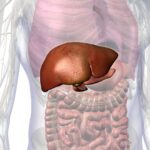
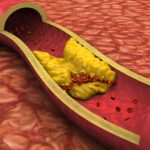













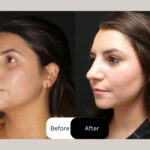




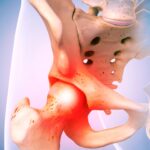


































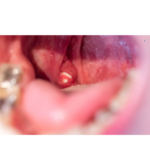







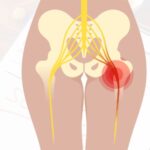

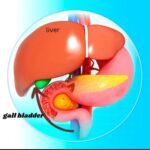
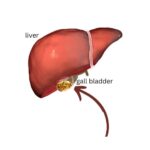










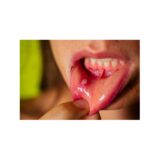
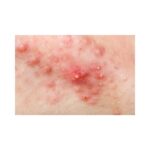
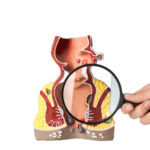







Good write-up, I’m normal visitor of one’s site, maintain up the excellent operate, and It’s going to be a regular visitor for a long time.